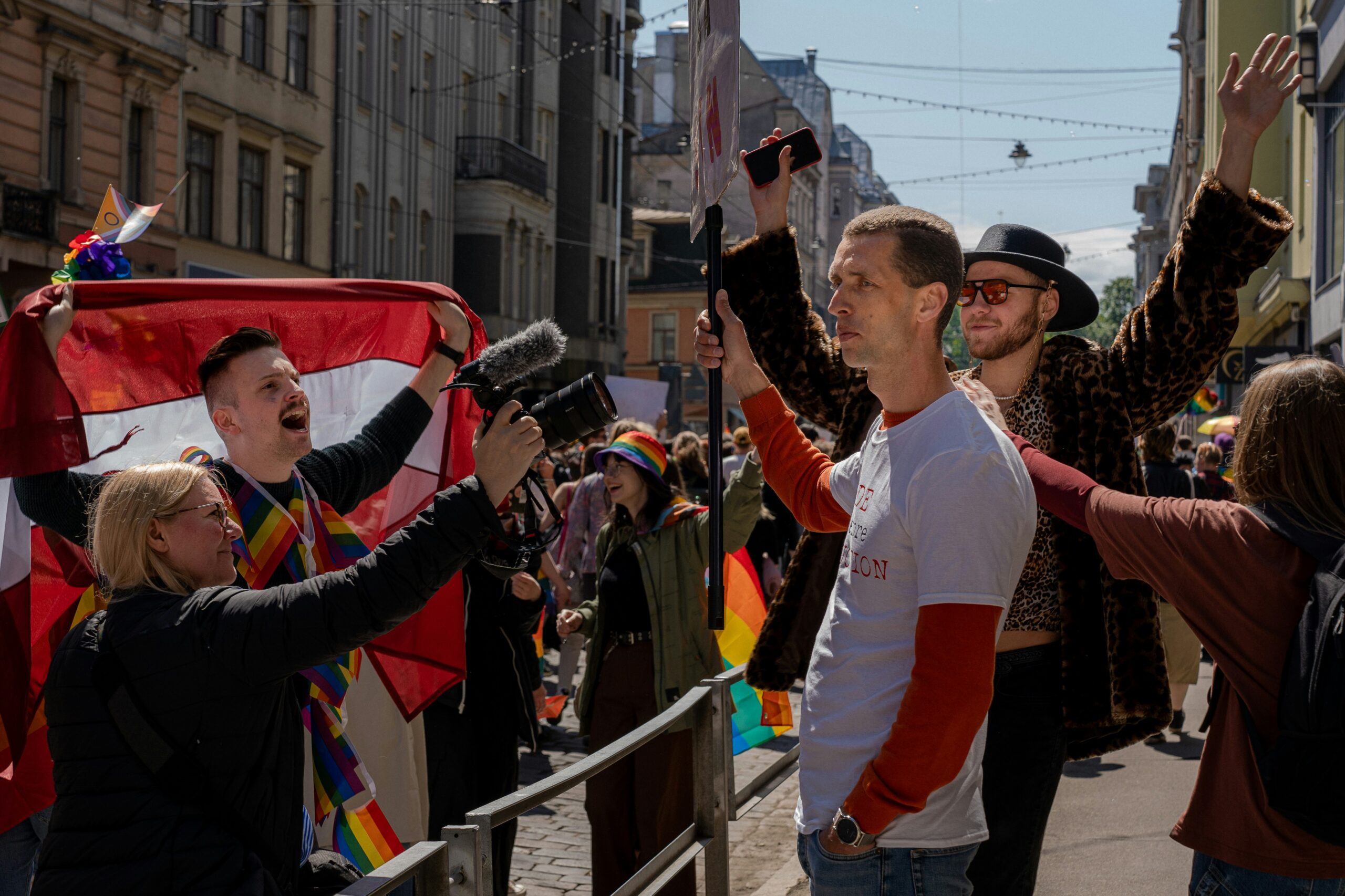Report
Estonia Monthly: Conscription Language Debate Reignites “Russophobia” Narratives
In December 2025, proposed language requirements for certain roles in Estonia’s conscription-based defence forces sparked renewed “Russophobia” narratives in Russian-language and pro-Kremlin online spaces. While critics framed the initiative as discriminatory toward Russian-speaking citizens, authorities emphasized operational safety, cohesion, and effective communication, highlighting ongoing tensions between integration, security, and minority rights.
Monthly Reports
Estonia Monthly: Conscription Language Debate Reignites “Russophobia” Narratives
In December 2025, proposed language requirements for certain roles in Estonia’s conscription-based defence forces sparked renewed “Russophobia” narratives in Russian-language and pro-Kremlin online spaces. While critics framed the initiative as discriminatory toward Russian-speaking citizens, authorities emphasized operational safety, cohesion, and effective communication, highlighting ongoing tensions between integration, security, and minority rights.
Read moreLatvia Monthly: Pro-Kremlin Narratives Undermine Baltic Sovereignty
Domestic opposition populist politicians disseminated narratives of institutional persecution and Latvia being undemocratic. At the same time pro-Kremlin channels systematically inverted geopolitical responsibility, reframing Russian military threats as defensive responses to Baltic aggression and portraying NATO membership as hidden subjugation. Together, these narratives construct an alternative reality designed to delegitimize Baltic institutions, weaken NATO cohesion, and normalize Russian regional dominance by suggesting resistance is both futile and illegitimate.
Read moreEstonia Monthly: Bessedin’s Detention Fuels Pro-Kremlin Outrage
The detention of Oleg Bessedin by Estonia’s Internal Security Service (KAPO) in early November reignited intense debates about foreign influence operations and media pluralism. While authorities accuse Bessedin of cooperating with Russian intelligence-linked actors and amplifying sanctioned Kremlin propaganda, pro-Kremlin commentators framed his arrest as a politically motivated attack on Russian speakers in Estonia. The case has deepened existing tensions between national security concerns and narratives portraying Estonia as increasingly hostile toward dissenting Russian-language voices.
Read moreLatvia Monthly: Disinformation Peaks Ahead of Final Vote on Istanbul Convention Withdrawal
While Kremlin-aligned disinformation has long been present in Latvia’s information space, the more alarming development is how local politicians have brought these tactics into the center of mainstream politics, making conspiracy theories and fabricated threats core components of parliamentary debate. Conservative and populist politicians like oligarch Ainārs Šlesers now routinely claim the Istanbul Convention promotes “117 genders” and enables forced gender transitions for children, combining Russian-style narratives about Western moral decay with Trumpian manipulation tactics including personal ridicule, “Sorosist” conspiracies, and apocalyptic calls to “save Latvia.”
Read moreEstonia Monthly: Kremlin Media Exploit Local Elections
In October 2025, pro-Kremlin commentators seized on Estonia’s municipal elections and language-law debates to portray the country as “Russophobic” and repressive toward Russian-speaking minorities. The narrative escalated after authorities barred several Latvian politicians from entering Estonia for a Russian-language community event, which malign networks reframed as an attack on free speech — merging ethnic-discrimination claims with pre-election propaganda themes.
Read moreLithuania Monthly: Protests Erupt as the New Culture Minister Faces Public Backlash
The appointment of Ignotas Adomavičius as Minister of Culture has triggered widespread protests across Lithuania. What began as a political appointment has evolved into a nationwide debate about cultural freedom, democratic values, and the growing use of cultural policy as a tool of political power.
Read moreLatvia Monthly: Disinformation Portrays Latvia as Both Militarily Weak and Recklessly Aggressive
Pro-Kremlin Telegram channels in September disseminated multiple narratives about Latvia, including portraying language education policies as discriminatory oppression, mocking military capabilities, and framing Russian military exercises as transparent while dismissing Baltic security concerns. Domestic disinformation intensified around the Istanbul Convention, with opposition politicians fabricating conspiracy theories about gender ideology and immorality to misrepresent a violence prevention treaty and undermine human rights protections.
Read moreEstonia Monthly: Kremlin Court Targets Narva Museum Director
A Moscow court sentenced Maria Smorzhevskih-Smirnova, director of the Narva Museum, to ten years in prison in absentia for allegedly “spreading false information” about the Russian army. The case sparked intense debate across Russian-language social media, with Kremlin-aligned voices portraying criticism of Russia as “Nazism rehabilitation.” The incident highlights Moscow’s ongoing use of legal intimidation and information influence to shape narratives beyond its borders.
Read moreLatvia Monthly: Alaska Summit Becomes Ammunition for Kremlin Propaganda
Pro-Kremlin Telegram channels portrayed Baltic politicians as financially motivated puppets receiving daily instructions from Western embassies, while simultaneously characterizing NATO as both an incompetent defender and threatening aggressor. These narratives intensified following the Trump-Putin Alaska summit, which channels exploited to advance betrayal narratives and undermine Baltic confidence in Western security guarantees.
Read moreShowing 1 to 9 of 76 results
Don’t miss a story.
We publish stories that change laws, lives, minds and the world. Subscribe to our newsletter to get our investigations delivered to your inbox.








